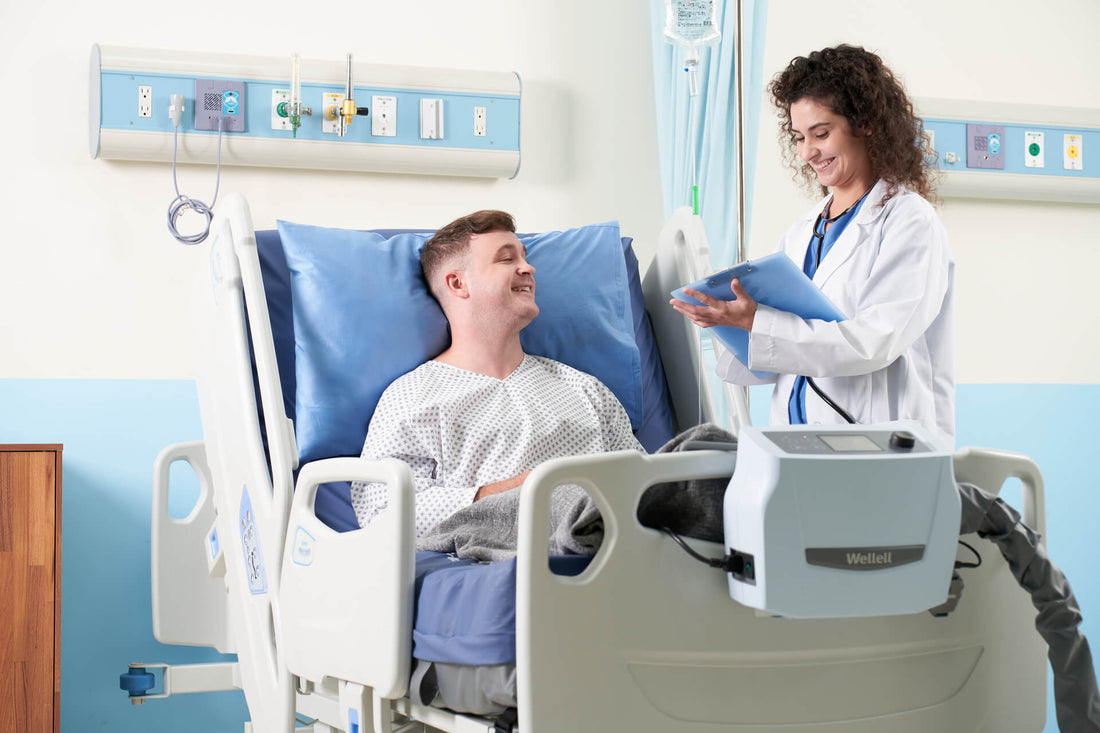
Enhancing Patient Care with Advanced Support Surfaces: A Nurse’s Perspective
In today’s busy healthcare world, patient outcomes depend on the care provided by healthcare professionals and the tools they use. One crucial part of patient care is managing and preventing pressure injuries, which remain a significant issue in hospitals and long-term care facilities. Nurses play a key role in reducing these injuries, and advanced support surfaces have become essential in improving patient outcomes and easing the workload for nurses.
The Growing Concern of Pressure Injuries
Pressure injuries, also called bedsores or pressure ulcers, affect patients who can’t move much, especially those confined to beds or wheelchairs. These injuries can cause serious complications, increasing patient discomfort, prolonging hospital stays, and raising healthcare costs. According to the Agency for Healthcare Research and Quality (AHRQ), hospital-acquired pressure injuries (HAPIs) affect 2.5 million patients each year in the U.S., contributing to nearly 60,000 deaths annually.
Preventing pressure injuries is a top priority for nurses. However, it’s a demanding task, requiring regular patient repositioning, frequent skin checks, and ensuring pressure is spread out across the body. This is where advanced support surfaces, like air mattresses and powered pressure relief systems, come in handy.
Effective Nursing Practices for Preventing Pressure Injuries
Preventing pressure injuries involves several strategies, with nurses playing a central role. Common practices include:
- **Frequent Repositioning**: Turning patients every two hours helps relieve pressure on high-risk areas like the heels, lower back, and hips, reducing the chance of tissue damage.
- **Skin Assessments**: Checking the patient’s skin regularly—at least once every shift—helps nurses spot early signs of pressure injuries. They focus on high-risk areas, looking for redness, skin discoloration, or open sores.
- **Moisture Management**: Keeping the patient’s skin dry and clean is key to preventing skin breakdown. Low-air-loss support surfaces can help by wicking away moisture, reducing the risk of pressure injuries.
- **Nutritional Support**: Ensuring patients have proper nutrition and hydration helps maintain healthy skin. Diets rich in protein, for example, support skin health and healing.
How Advanced Support Surfaces Improve Patient Care
Advanced support surfaces are designed to help prevent pressure injuries by redistributing the patient’s weight and reducing pressure on vulnerable areas. Alternating pressure mattresses and low-air-loss systems are particularly effective, using air flow to keep the skin dry and changing pressure areas to prevent injuries.
From a nurse’s perspective, these surfaces help reduce the need for constant patient repositioning, allowing them to focus on other important aspects of care. A study by the European Pressure Ulcer Advisory Panel (EPUAP) found that patients on advanced support surfaces needed less manual repositioning, reducing the workload for nurses and improving care outcomes.
Battery-Backed Solutions for Emergencies
Along with comfort and injury prevention, the Optima Auto mattress includes a battery backup system that keeps it running during power outages. This is crucial in emergencies, like natural disasters, where continuous care can save lives. According to the Centers for Medicare & Medicaid Services (CMS), hospitals must be prepared for emergencies, and the Optima Auto’s battery feature helps meet this requirement while giving caregivers peace of mind (The Joint Commission).
Innovative Solutions for Pressure Injury Prevention
At Woundcaremattress.com., we know how important it is to equip healthcare providers with the right tools to deliver excellent care. Our Premium Air support surface combines alternating pressure and low-air-loss therapies to provide the best pressure redistribution and skin protection while ensuring patient comfort. The advanced design of the Optima Auto mattress automates pressure relief, adjusting to the patient’s movements without needing manual intervention, making it a valuable tool for both patient care and nursing efficiency.
By investing in the right support surfaces, hospitals and long-term care facilities can greatly reduce the risk of pressure injuries while also improving workflow and morale among staff. At Medical Equipment Specialists, we are dedicated to supporting healthcare professionals with advanced technology that delivers exceptional patient care.
Learn more about how our advanced support surfaces can improve your care standards.
